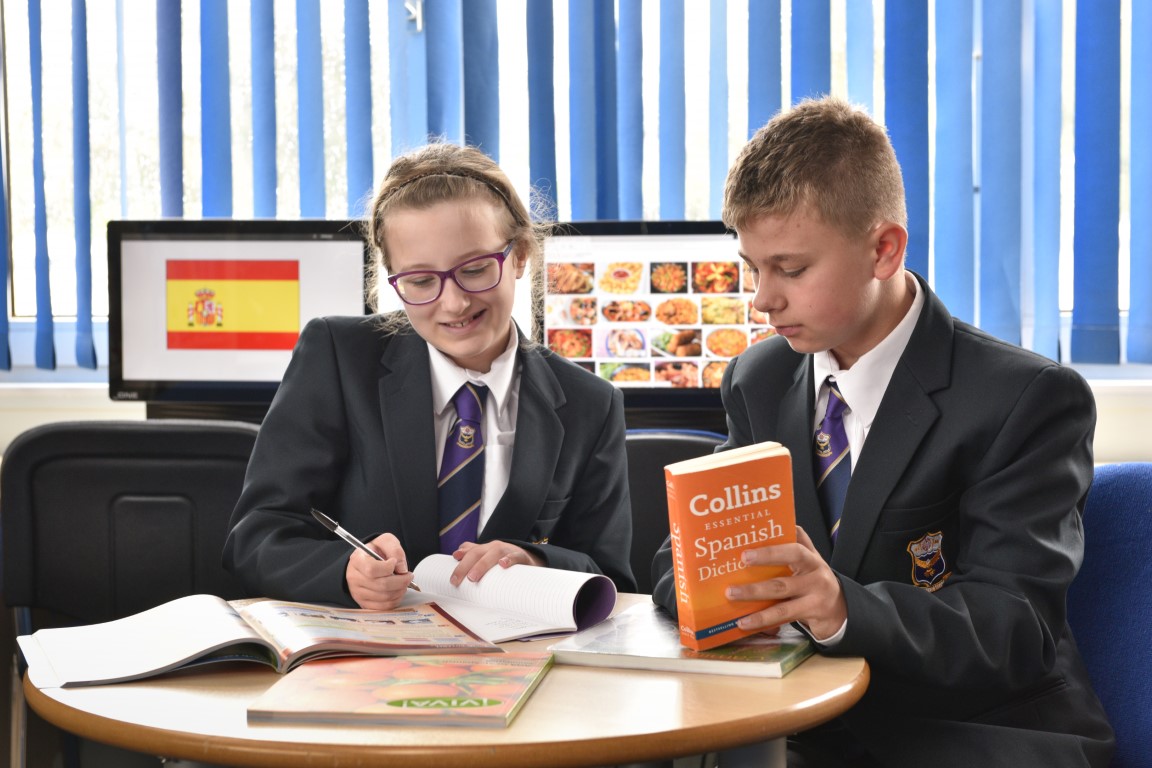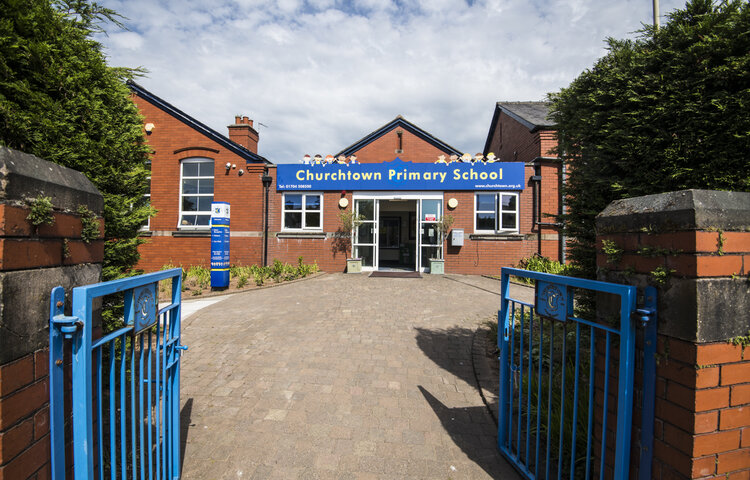Foundation

FOUNDATION FACULTY
At Burscough Priory Academy, the Foundation Faculty comprises the following departments:
- Geography
- History
- Modern Foreign Languages
- Religious Studies
Curriculum
Geography
Geography is a part of everyday life; it is a relevant and interesting subject which helps us to understand our changing and interconnected world. Geography helps us understand changes that are taking place in our local area as well as developing awareness, knowledge and understanding of issues on a global scale. Geography is always in the news!
In Geography at Key Stage 3 pupils follow courses that will prepare them for the GCSE in Geography. We concentrate on developing key geographical skills and understanding through a wide variety of geographical topics including; map skills, environmental issues and river studies as well as up to date issues such as our position in Europe and developments in Brazil, China and the USA. These topics allow our pupils to gain a good understanding of our ever changing world.
At Key Stage 4 pupils follow the new AQA Specification which is split into three papers.
Paper One is called ‘Living with the physical environment’. This unit is concerned with the dynamic nature of physical processes and systems, and human interaction with them in a variety of places and at a range of scales.
Paper Two is called ‘Challenges in the human environment’. This unit is concerned with human processes, systems and outcomes and how these change both spatially and temporally. They are studied in a variety of places and at a range of scales and must include places in various stages of development, such as higher income countries (HICs), lower income countries (LICs) and newly emerging economies (NEEs).
Paper Three is called ‘Geographical applications’. The Geographical applications unit is designed to be synoptic in that students will be required to draw together knowledge, understanding and skills from the full course of study. This unit includes the opportunity for fieldwork and the students will complete an exam based on skills developed through fieldwork.
The weighting for the final grade is:
- Living in the physical environment- 35%
- Living in the human environment -35%
- Geographical applications- 30%
History
As a department our aim is to provide students with the opportunity to study history but to also develop a life-long passion and interest in the past. Throughout KS3 we introduce, develop and embed the essentials skills through topics such as: ‘Monarchy and Power’, ‘Empires and Expansion’ and ‘Ordinary lives’; including studies from The Romans through to Spanish Conquest and the British Empire. We also look at Conflict and Power through topics such as the Norman Conquest right up to Conflict in the 20th and 21st centuries. Through these areas our students study a balance of British, local, European and World history.
History GCSE
In History at Key Stage Four we follow the Edexcel GCSE History course which covers the units of Medicine in Britain c.1250-present which includes a detailed study of the British Sector of the Western Front, 1914-18; Anglo-Saxon and Norman England, c1060–88; and Weimar and Nazi Germany, 1918-1939; Spain and the ‘New World’ c.1490-c.1555. There are three exam papers and there is no coursework or controlled assessment in History.
“We are not makers of history. We are made by history”.
Martin Luther King Jr
Modern Foreign Languages
We place a lot of importance in learning a Modern Foreign Language (MFL) here at Burscough Priory Academy. Our Department consistes of enthusiastic, dedicated teachers who love languages and who wish to encourage our students to do the same.
In both Key Stages, we focus on the four key skill areas in MFL: Listening, Reading, Writing and Speaking. We use a variety of techniques and strategies in our lessons, from interactive role plays to games and songs. Outside of the classroom we encourage pupils to consolidate and expand their learning by setting engaging, online tasks and competitions to aid recall and mastery. We couple this with regular vocabulary tests to really help our students do their absolute best. All classes learn Spanish in mixed ability groups and students are encouraged to learn best practices from each other.
The current Year 7 have six one-hour lessons per fortnight, current Year 8 have five and Year 9 enjoy four lessons per fortnight. Students continue to study Spanish up to the end of Year 9, when they will make their formal option choices. Students can then opt to continue to study Spanish to GCSE level and we encourage everyone, not just able linguists, to build on the foundations they have mastered during Key Stage 3. At Key Stage Four, students have six hours of Spanish lessons per fortnight and are set online learning tasks on top of this.
At Key Stage Three we teach several modules per year that each incorporate a range of the four skills in MFL with frequent reference to the important cultural aspects of language study. We track progress through a variety of assessment activities and encourage confidence in the speaking skill through pair and group work. Formal and informal assessments and quizzes enable us, and pupils, to identify strengths and weaknesses so that we can develop these and make progress.
At Key Stage Four we follow the Edexcel GCSE syllabus. Students consolidate and enhance their knowledge of fundamental grammar points and language structures whilst expanding their vocabulary through a range of topics within the GCSE specification. The GCSE exam is a linear one in which all four skills are given equal weighting and examined separately at the end of Year 11.
“To learn a language is to have one more window from which to view the world", Chinese proverb
Religious Studies
The overall aim is to encourage pupils to develop a positive attitude towards other people, respecting their right to hold different beliefs from their own, and towards living in a society of diverse beliefs and cultures. We aim to teach tolerance and challenge prejudice towards people of different race and beliefs through providing opportunities to develop an understanding of the value of living in a multi-cultural, multi-faith and multi-lingual society.
Religious Education lessons provide time for pupils to reflect upon their own needs, experiences and questions about life and to confront what are sometimes referred to as ‘ultimate questions'. Such reflections encourage to pupils to develop an open mind to new and different concepts and to form their own opinions based on evidence and argument. Pupils are encouraged to develop a lively and enquiring mind so to acquire the decision-making skills needed in adult life. Schemes of learning investigate historical and current issues of prejudice and discrimination in order to address the necessity to stand up to hatred and to instil a sense of social responsibility amongst our pupils.
At Key Stage 3, all students follow the Lancashire Agreed Syllabus which is topic based study linked to the six major world religions Christianity, Islam, Hinduism, Sikhism, Buddhism and Judaism.
In Religious Studies at Key Stage Four we follow the EDUQAS SYLLABUS. This subject consists of examinations only and there is no coursework in this subject.
Foundation Faculty Staff
| Mrs Dawson | Director of Foundation Faculty, Teacher of MFL |
| Mrs Hatton | Head of Geography |
| Mr McGrath | Teacher of MFL |
| Mr Hill | Teacher of Geography |
| Mr Cathcart | Teacher of Geography |
| Mrs Alcock | Head of History |
| Miss Sloan | Teacher of History |
| Mrs Walker | Teacher of History |
| Mrs Smith | Head of RE |

